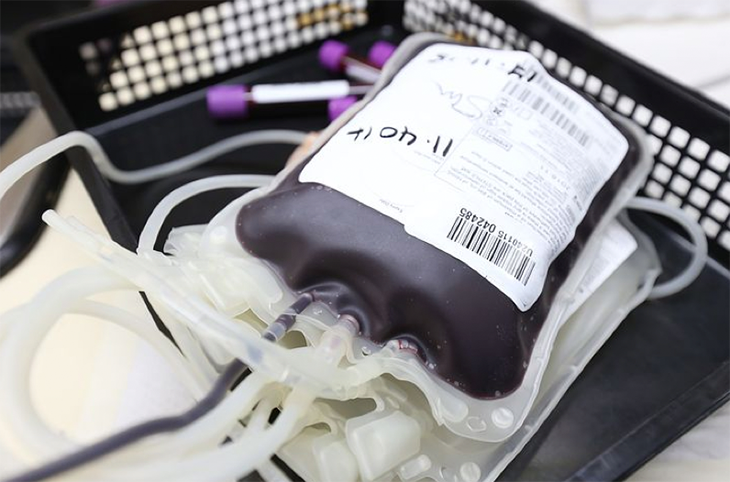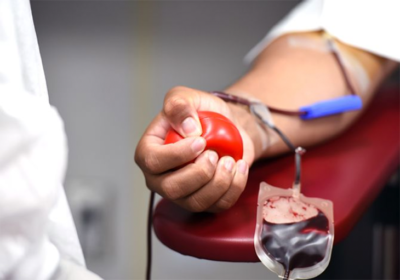
Giving blood is one of the most important things you can do to help your fellow man — especially during the COVID-19 pandemic, as blood is currently in short supply. Even when we’re not facing a historic blood shortage, someone needs blood in the U.S. every two seconds, and doctors are now faced with difficult decisions about which patients should receive hard-to-come-by blood products.
You can make some of those decisions a little easier by donating blood, but giving blood isn’t just good for patients who need it to live. Giving blood regularly could save your life, too. It could lower your blood pressure, prevent iron buildup in your organs, protect you from cancer, and more. Let’s take a look at some of the ways giving blood can benefit your health as a donor.
1) Lower Your Blood Pressure
Do you suffer from high blood pressure? Giving blood could help you achieve a significant reduction in both diastolic and systolic blood pressure, provided you give blood on a regular basis. Researchers have found that giving blood as few as four times can significantly improve blood pressure, but you have to keep giving blood as often as you’re allowed, usually every 56 days. The more often you give blood, the greater the effects on your blood pressure, and the higher your blood pressure when you start, the greater a reduction you can expect to see after giving blood at least four times. If you can’t bring yourself to give blood every two months, doing so as infrequently as once a year can still have a beneficial effect on your high blood pressure.
2) Treat Hemochromatosis
Hemochromatosis is a genetic disease that causes your body to absorb too much iron from your blood. Your body then stores this extra iron inside major organs, which can lead to all kinds of unpleasant and even deadly health problems, including major organ failure and cancer.
Hemochromatosis is fairly common — about one million Americans have it. And you can have it without knowing you have it — you could be silently accumulating excess iron stores in your organs right now and not realize it. Hemochromatosis is usually hereditary, and the treatment involves therapeutically removing some of your blood at regular intervals to reduce the amount of iron your body has available and mitigate the effects of iron overload on the body. If you have hemochromatosis and you’re not aware of it, giving blood every couple of months could effectively treat it. If you do know you have hemochromatosis, talk to your provider about donating the blood you have removed therapeutically. There’s nothing wrong with it, and it could save someone’s life.
3) Support Heart and Liver Health

Iron in your bloodstream can cause your blood vessels to constrict, which can raise your heart attack risk because narrow, tightened arteries are more likely to suffer a blockage that can cause a major cardiac event. Donating blood as infrequently as once a year can keep your blood vessels more pliable and lower your heart attack risk by as much as 88 percent.
Not to mention, donating blood removes excess iron from your body, so if you’re having any issues with your body storing iron in your heart, liver, pancreas, and other organs, giving blood regularly will help. You’re less likely to get heart disease, less vulnerable to liver diseases, and less likely to develop endocrine disorders or metabolic disorders, like diabetes, if you give blood regularly.
4) Reduce Your Cancer Risk
Iron is a free radical. Free radicals cause oxidative stress to your body’s cells, which can cause cellular mutations that can lead to cancer. When you give blood every couple of months, you’re removing some of the free radicals from your body, so your cells will experience less oxidative stress and you’ll enjoy a lower overall cancer risk — especially if you already have a vascular condition like peripheral arterial disease (PAD).
5) Burn Some Extra Calories
Giving a pint of blood burns 650 calories — which isn’t bad for kicking back and relaxing for an hour or so. While you can’t donate blood often enough to rely on it as a weight-loss plan, the extra calories you’ll lose to blood donation mean you can eat that cookie and drink that glass of orange juice afterward without worrying about it going to your hips. You can even go out and treat yourself to a fancy dessert — you deserve it for helping your fellow man, and it won’t blow your diet!
There’s no more generous way to give of yourself than to donate blood to those who need it. Your blood donations will save lives — and one of the lives you save could be your own.


